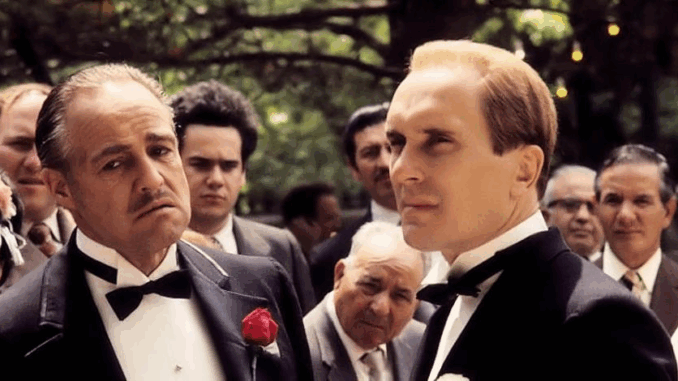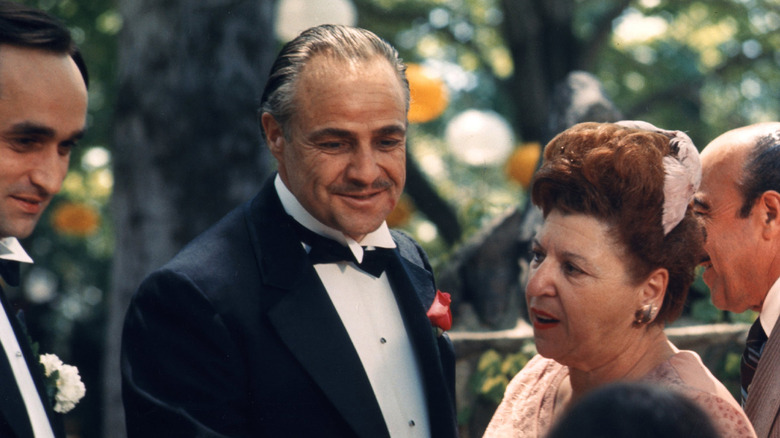
Few films in the history of cinema have etched themselves into the collective memory of audiences like The Godfather. Directed by Francis Ford Coppola and based on Mario Puzo’s novel of the same name, this 1972 masterpiece isn’t just a gangster movie—it’s a profound exploration of family, power, morality, and the American dream gone dark.
The Plot that Redefined Crime Cinema
Set in the years following World War II, The Godfather follows the powerful Corleone family, one of the most influential Mafia dynasties in New York. At its heart is Vito Corleone (played by Marlon Brando), the aging Don whose word is law and whose influence stretches across politics, law enforcement, and crime.
But the story truly begins with Michael Corleone (Al Pacino), Vito’s youngest son, a war hero and outsider to the family business. Over the course of the film, Michael is pulled deeper into the world he once rejected, eventually becoming the next Don in a chilling, tragic transformation. His journey from reluctant heir to ruthless leader is the emotional backbone of the film.
A Revolution in Filmmaking
The Godfather changed everything. Its storytelling was rich and layered, its cinematography dark and elegant, and its performances deeply human. Brando’s portrayal of Vito Corleone, with his raspy voice and quiet gravitas, won him an Academy Award and created one of the most iconic characters in movie history. Al Pacino’s evolution from innocent to mob boss was equally mesmerizing.
Coppola’s direction fused operatic drama with gritty realism. The film’s pacing, atmosphere, and dialogue set new standards for storytelling. The now-legendary lines—“I’m gonna make him an offer he can’t refuse,” “Leave the gun, take the cannoli,”—have become part of pop culture lexicon.

Themes That Cut Deep
At its core, The Godfather is not just about organized crime. It’s about the cost of loyalty, the nature of power, and the illusion of control. The film questions the idea of the American dream by showing how success and security often come at the cost of morality. Michael Corleone’s descent into darkness reflects how power can corrupt even the most principled men.
Family is both sacred and dangerous in the world of The Godfather. Love is real, but it coexists with betrayal, violence, and vengeance. The Corleones are bound by blood, but survival in their world often means sacrificing personal happiness and humanity.
Critical and Cultural Legacy
When it was released, The Godfather was a massive success. It won three Academy Awards, including Best Picture, and was nominated for seven others. Critics and audiences alike were stunned by its sophistication and emotional depth. Today, it remains a constant presence in “greatest films of all time” lists.
But its influence goes beyond awards. The Godfather redefined the gangster genre, inspired countless filmmakers, and became a cultural touchstone. It helped elevate cinema to an art form that could tell epic, Shakespearean stories in a modern American setting.
A Legacy Written in Blood and Gold
The Godfather is more than just a film—it’s a cinematic landmark. It’s a chilling fable about power and loss, a story that lingers long after the credits roll. Through unforgettable characters, haunting music, and breathtaking storytelling, it asks questions that remain timeless: How far would you go for family? And what would it cost to protect a legacy?
To this day, The Godfather reminds us that greatness often comes with a price—and sometimes, the people we try hardest to protect are the ones we end up hurting the most.
